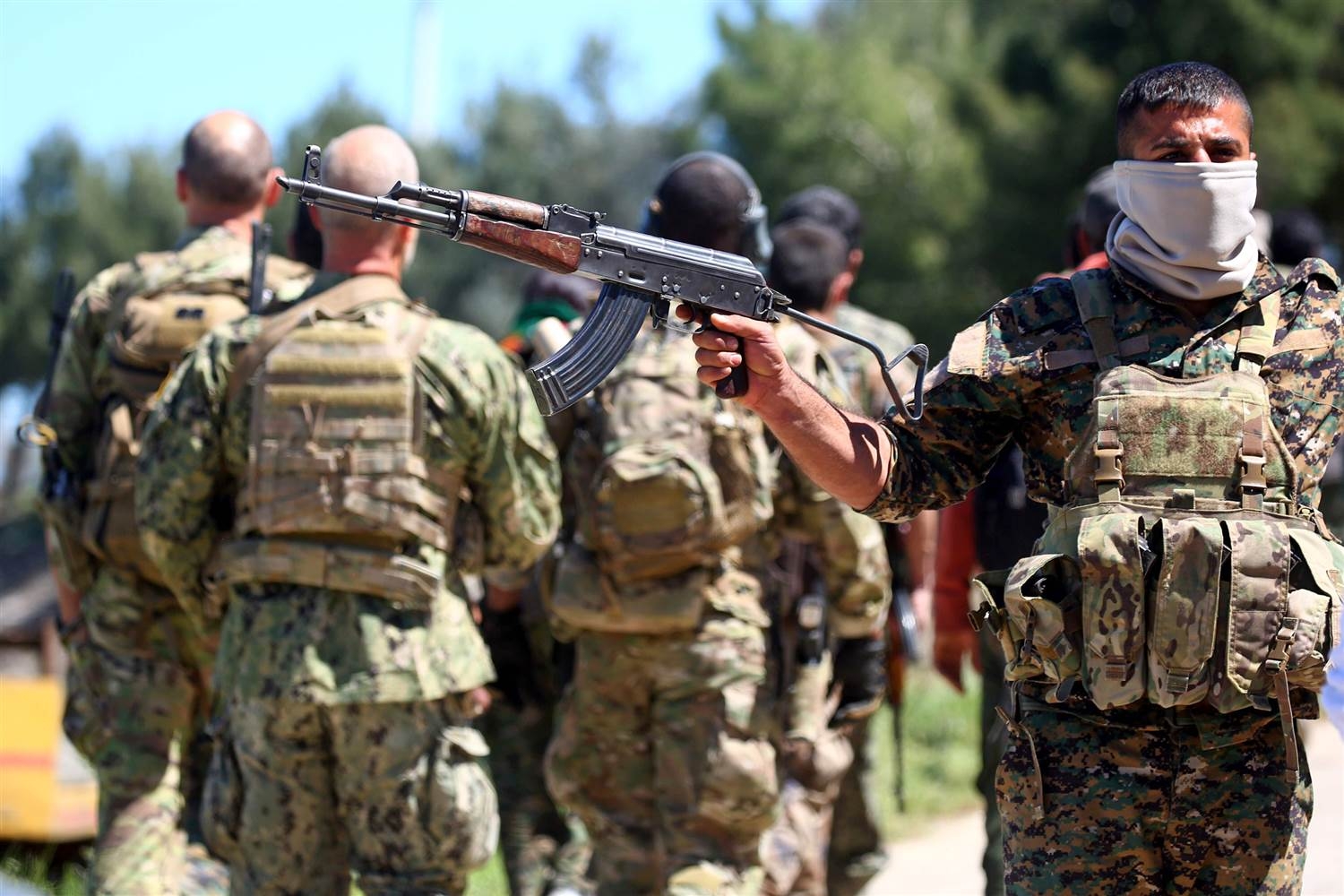
 Why Turkey is marching on northern Syria
Why Turkey is marching on northern Syria
From 2015-16 Britain sold £175 million worth of weaponry to Turkish President Recep Erdogan, in 2017 the British government revived an arms deal that saw fighter jets sold to Turkey. Now the Turks are massacring innocent Kurds with them.
In the strained political climate of the middle east, the Kurds of Afrin have fought bravely to secure the section of northern Syria, defending it successfully against Islamic State (IS) and providing refuge for thousands of minorities fleeing the brutal civil war gripping the nation. They have brought the fight to extremists and supported the west in their effort to resolve the conflict.

Since the breakout of the civil war in Syria in 2011, the Kurds can make a reasonable claim to be the most politically stable group in the war-torn country.
In one of the most crucial chapters in the battle against IS, it was the Kurdish forces led by the Kurdish Yekineyen Parastina Gel (YPG) that defended the city of Kobanî against a fierce siege. The west celebrated the defence and many believe it will be remembered as the beginning of the end for IS.
This semi-autonomous region is now under threat, however, from a UK ally. Turkey has pushed its army into the region, unleashing British weaponry on Afrin, an area controlled jointly by the YPG and the Democratic Union Party (PYD), both seen as allies of Erdogan’s nemesis the Kurdistan Workers’ Party (PKK). In just three days of Turkey’s offensive against Afrin 24 civilians had died, alongside 26 Kurdish fighters, according to the war monitor, Syrian Observatory for Human Rights. To further complicate matters Turkey is enjoying the support of Russia in their Syrian military operations.

(From left to right) Iranian leader Hassan Rouhani, Vladimir Putin and Recep Erdogan
Erdogan’s move should trouble the British government, as the YPG forms a fundamental part of the Syrian Democratic Forces, Britain’s ally in the fight against IS. By bombarding Afrin, Turkey is risking the security of the entire region, it has insisted the U.S. end its support of the YPG. No confrontation was even necessary with the British government as they have already withdrawn their support of YPG.
Europe’s muted protest can possibly be put down to the strong negotiating position of Turkey when it comes to the refugee crisis (which they are now worsening). But how long can Britain hide behind this excuse? Is this a sneak-peak of Britain’s post-Brexit approach to international warfare, just a gory arms-trade fair?
Here is a short guide to Turkey’s confused involvement:
2011 – Turkey was initially troubled by Syrian president Bashar Assad’s violence against protestors and asked the president to resign from office.
2011 – Turkey helps to train the Free Syrian Army (FSA), rebels who oppose Assad.
2012 – In response to a Turkish fighter jet being struck down by pro-Assad forces Turkey intensifies its military presence.
2015 – After 33 people were killed by an IS bombing in the Suruç region of Turkey, Erdogan prioritised the defeat of IS and the PKK over the deposition of Assad.
2016 – Turkey bomb Kurdish targets throughout the year.
2017 – Russia persuades Turkey and Iran to join its war coalition, aiming to keep Assad in power.
2018 – Turkish troops enter the northern region of Syria, aiming to topple the Kurdish forces in Afrin.
2018 – The Turkish presence creates a new proxy in an already desperate situation, as they mount an offensive hoping to eradicate Kurds from the country altogether.
To support Kurds in Syria this website directs visitors to a number of organisations asking for donations, including earthquake relief and the Kurdistan Solidarity Campaign.
